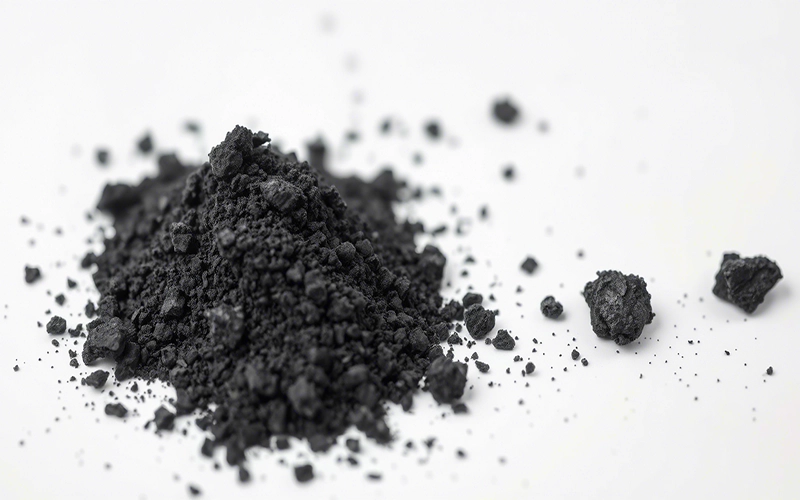Calcined petroleum coke (CPC) is a high-purity carbon material produced by heating green petroleum coke—a byproduct of the oil refining process—at high temperatures, typically between 1200°C and 1400°C, in a rotary kiln or shaft furnace. This calcination process drives off volatile hydrocarbons, moisture, and other impurities, leaving behind a concentrated carbon product with enhanced physical and chemical properties.
CPC is widely used in the aluminum industry, particularly in the production of anodes for aluminum smelting. In the Hall-Héroult process, CPC is blended with coal tar pitch to form carbon anodes, which are used in electrolytic cells. Its low ash content, high carbon purity (typically over 98.5%), and good electrical conductivity make CPC a critical component in maintaining the efficiency and quality of the aluminum production process.
Beyond aluminum, calcined petroleum coke is used in steelmaking, foundries, and titanium dioxide production. In steel and iron manufacturing, CPC serves as a recarburizer, which is added to molten metal to increase its carbon content and improve its mechanical properties. Its use in foundries also includes casting and other metallurgical operations where high-purity carbon is required to produce stronger and more durable metal products.
CPC is categorized by its sulfur content, which varies depending on the crude oil source used to produce the green coke. Low-sulfur CPC (less than 1.5%) is preferred for aluminum and other high-performance applications, while higher sulfur grades may be used in less sensitive industrial processes. Other quality parameters include fixed carbon, real density, volatile matter, and grain size distribution.
The global demand for calcined petroleum coke has grown steadily in tandem with the expansion of the aluminum and steel industries, as well as infrastructure development and automotive manufacturing. Environmental regulations are also influencing the production and use of CPC, pushing refiners and manufacturers toward cleaner and more energy-efficient processes.

With its excellent thermal stability, electrical conductivity, and high carbon content, CPC is also finding emerging applications in battery technologies, including lithium-ion battery anodes, as researchers seek cost-effective and sustainable carbon sources.
In summary, calcined petroleum coke is a crucial industrial carbon material used across multiple sectors. Its high purity, strength, and conductivity make it indispensable in energy-intensive industries and advanced manufacturing processes. As technology and environmental needs evolve, CPC continues to play a vital role in supporting industrial efficiency and innovation.
This coke is the product of the coker unit in a crude oil refinery. The calcined petroleum coke is used to make anodes for the aluminium, steel and titanium smelting industries. The green coke must have a sufficiently low metal content to be used as an anode material. Green coke with this low metal content is referred to as anode-grade coke. The green coke with too high metal content will not be calcined and is used for burning. This green coke is called fuel-grade coke.

| Element | FC | S | Ash | Moi | Vm | Size | Origin |
|---|---|---|---|---|---|---|---|
| Percent | 98.5 | 0.5 | 0.5 | 0.5 | 0.5 | 1-3mm | China |

© 2013 Vertix Co. All Rights Reserved. Leading Supplier Of Foundry & Metallurgical Materials